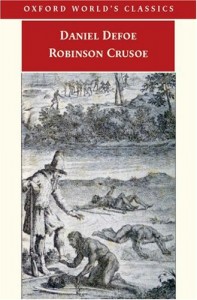 Title: The Last Girlfriend on Earth and Other Love Stories (Goodreads)
Title: The Last Girlfriend on Earth and Other Love Stories (Goodreads)
Author: Simon Rich
Published: Serpent's Tail, 2013
Pages: 224
Genres: Humour, Short Stories
My Copy: Library Book
Buy: Amazon, Book Depository, Kindle (or visit your local Indie bookstore)
The Last Girlfriend on Earth is a collection of skits (no quite short stories) about love and matters of the heart. Simon Rich was one of the youngest writers to work on Saturday Night Live, which explains the short bizarre stories. For a man only just 30, Rich has had an impressive career already, receiving a two-book contract with Random House prior to graduating from Harvard University. The Last Girlfriend on Earth is his fifth book, but it is the first one I’ve had the opportunity to read.
These skits/stories are a lot of fun, and I was entertained from start to finish. Highlights include, ‘Unprotected’ the story told entirely from the perspective of a condom, ‘Magical Mr. Goat’ tells the story of a girl’s imaginary friend stuck in the ‘friend-zone’, and there is even one about a dog’s missed connections. There are some stories that are just so bizarre that you wonder how he thought them up, like dating Mother Teresa (she is practically a saint of a woman) or finding out that your ex is dating Hitler. There was even one where a guy wins the MacArthur Fellowship ‘Genius award for having a one night stand.
Simon Rich clearly likes to play with stereotypes and inject some absurdity into his stories, yet they all seem to have something familiar about them. The ideas portrays in this book are that of love and even heartbreak; while expressed in a humorous way, I really enjoyed how there was an element to truth behind them. For example, what happens when the invisible man gets dumped? Naturally he would use his abilities to spy on his ex-girlfriends’ date. How about when Cupid becomes a teenager and rebels? What kind of game of Jeopardy! would it be if Alex Trebek’s ex-wife was a contestant. All the scenarios are unusual but relatable.
I always find it hard to write a review about a collection of short stories. With The Last Girlfriend on Earth, you’ll be definitely be entertained, think of it as an episode of Saturday Night Live on the topic of love. The humour of Simon Rich was razor shape and just twisted, but that is the kind of thing I enjoy. I’m not sure what his other books are like, but I’m curious to find out.

 Title: After the Armistice Ball (
Title: After the Armistice Ball ( Title: Robinson Crusoe (
Title: Robinson Crusoe ( Title: A Rogue by Any Other Name (
Title: A Rogue by Any Other Name ( The Novel Cure: An A-Z of Literary Remedies by Ella Berthoud, Susan Elderkin
The Novel Cure: An A-Z of Literary Remedies by Ella Berthoud, Susan Elderkin Book Lust: Recommended Reading for Every Mood, Moment, and Reason by Nancy Pearl
Book Lust: Recommended Reading for Every Mood, Moment, and Reason by Nancy Pearl Title: Books (
Title: Books ( Title: Tinker, Tailor, Soldier, Spy (
Title: Tinker, Tailor, Soldier, Spy ( Title: The Flavours of Love (
Title: The Flavours of Love ( Title: Loaded (
Title: Loaded ( Title: The Paris Wife (
Title: The Paris Wife (